Filter by

Smart Europe
A green digital economy could change the future of the Old Continent. The new Smart Europe will be based on three elements: new communication technologies, new sources of energy and new modes of mobility. But the transition will require a transformation of the continental infrastructure. Digitalisation, the Internet and renewables will play a major role in the so-called Third and Fourth Industr…
- Edition
- -
- ISBN/ISSN
- 9789286142772
- Collation
- -
- Series Title
- -
- Call Number
- 650
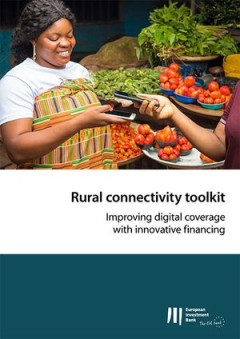
Rural connectivity toolkit : Improving digital coverage with innovative finan…
Africa’s digital transformation is generating big changes and benefits for many parts of the economy and society. But hundreds of millions of people still have no internet connections. For those who have internet access, prices can be high and bandwidth is often severely limited. Many African countries lack the technical capabilities and financing to plan big telecom projects that can fill th…
- Edition
- -
- ISBN/ISSN
- 9789286150227
- Collation
- -
- Series Title
- -
- Call Number
- 650
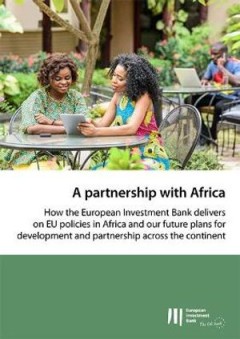
A Partnership with Africa
Africa is embarking upon a period in which its political, economic and social outlook will transform. The European Investment Bank is a key part of the EU toolbox that for decades has helped make the partnership between Africa and Europe stronger. We aim to maximise our potential as the EU bank, so that we can join our African partners in addressing today’s critical challenges together and em…
- Edition
- -
- ISBN/ISSN
- 9789286150135
- Collation
- -
- Series Title
- -
- Call Number
- 650

On Water
When taking a drink is as easy as turning a tap, it is easy to forget that our water supply is fragile and that hundreds of millions of people do not have clean drinking water or proper sanitation.The human impact on our land, the oceans and the climate is endangering our future. In a world accustomed to instant gratification and immediate consumption, we need more than ever long-term thinking …
- Edition
- -
- ISBN/ISSN
- 9789286143199
- Collation
- -
- Series Title
- -
- Call Number
- 650

On Inequality (Big Ideas)
Does Europe have an inequality problem? Amid the COVID-19 pandemic, many Europeans are certainly struggling. The rise of populist movements is another signal that something is awry. Many Europeans no longer see their economy as fair. But is this a problem of too much inequality, or just a problem of ideology? Is inequality even a bad thing? We need to consider the statistics on economic inequal…
- Edition
- -
- ISBN/ISSN
- 9789286149351
- Collation
- -
- Series Title
- -
- Call Number
- 650
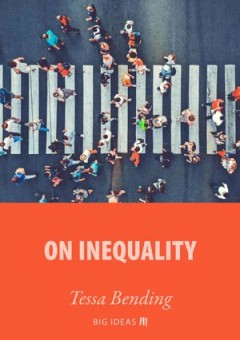
On Inequality (Big Ideas)
Does Europe have an inequality problem? Amid the COVID-19 pandemic, many Europeans are certainly struggling. The rise of populist movements is another signal that something is awry. Many Europeans no longer see their economy as fair. But is this a problem of too much inequality, or just a problem of ideology? Is inequality even a bad thing? We need to consider the statistics on economic inequal…
- Edition
- -
- ISBN/ISSN
- -
- Collation
- -
- Series Title
- -
- Call Number
- 650
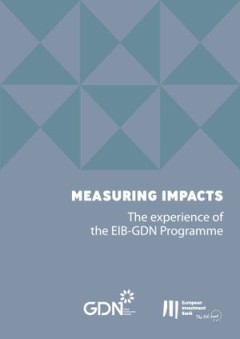
Measuring impacts – The experience of the EIB-GDN programme
Measuring, understanding and communicating the EIB’s development impact is a key strategic priority for the European Investment Bank (EIB). In partnership with the Global Development Network the EIB started the Programme in Applied Development Finance in 2017, to deepen understanding of results and impact of operations under the Impact Financing Envelope (IFE) for Africa Caribbean and the Pac…
- Edition
- -
- ISBN/ISSN
- -
- Collation
- -
- Series Title
- -
- Call Number
- 650
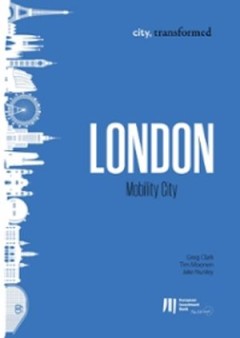
London : Mobility City
Despite the uncertainties of Brexit, London continues to be rated as a leading location in Europe and the world for business, knowledge, and talent. But 30 years ago, when London had no citywide government, a transport system in crisis, and no successful track record of continuous large-scale upgrades to the urban fabric, this scenario would have seemed highly unlikely. In this essay we examine…
- Edition
- -
- ISBN/ISSN
- 9789286138959
- Collation
- -
- Series Title
- -
- Call Number
- 650
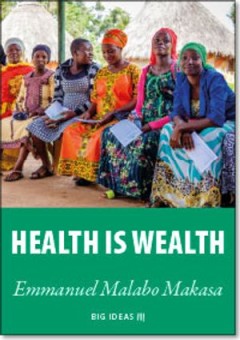
Health is wealth
Surgical intervention saves lives, but health policies in the developing world have often been too feeble or too focused on treating specific emergencies, rather than ensuring that everyone has access to true universal healthcare. Many rural areas in Africa still have high maternal and infant death rates because there are no local surgeons. Many children drop out of school because their untreat…
- Edition
- -
- ISBN/ISSN
- -
- Collation
- -
- Series Title
- -
- Call Number
- 650

Life in Cyberspace
Internet is a real place. Every time we switch on our computers, use a program or an application, or log in to a social media site, we enter a virtual space made up of worlds, domains, forums and rooms. But we behave differently when we interact with technology: technology amplifies and accelerates our deeds; it can help us find useful information, benefit from a wide range of services and stay…
- Edition
- -
- ISBN/ISSN
- 9789286142956
- Collation
- -
- Series Title
- -
- Call Number
- 650
 Computer Science, Information & General Works
Computer Science, Information & General Works  Philosophy & Psychology
Philosophy & Psychology  Religion
Religion  Social Sciences
Social Sciences  Language
Language  Pure Science
Pure Science  Applied Sciences
Applied Sciences  Art & Recreation
Art & Recreation  Literature
Literature  History & Geography
History & Geography